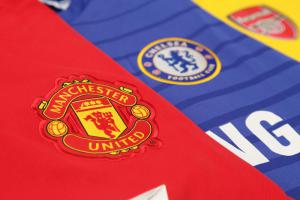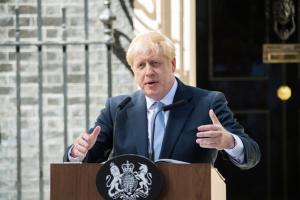Balance sheets and budget statements are the new priority for football clubs. Fans, trophies, history, and the love of the game are simple distractions.
It's greed... Football has been a little bit of a saviour for people during these times... It could have been the good that came out of this pandemic. They've grabbed defeat from victory."”
NEW YORK CITY, NEW YORK, UNITED STATES, April 20, 2021 /EINPresswire.com/ -- This past Sunday (April 18th), the ?founding? clubs of the new European Super League (ESL) all distributed press releases announcing the formation of the league. As soon as news began to circulate regarding the formation of a new European league, uproar and outcry amongst fans, former players, pundits, coaches, players, FIFA, and UEFA began to emerge. The creation of the European Super League will change the face of football (soccer) across Europe, if not across the world. At the heart of growing condemnation lies accusations of extreme greed and monopolization aimed at the founding clubs. — Gary Neville, former player and current pundit
The founding clubs of the ESL are among the most powerful, successful, and wealthiest clubs in Europe. From Spain; Real Madrid, Barcelona, and Atletico Madrid have joined. From Italy; Juventus, AC Milan, and Inter Milan will also play. Finally, from England; Manchester City, Manchester United, Arsenal, Chelsea, and Tottenham Hotspurs are all in agreement to play as well. To North American readers, some of these names will be familiar, but they are among the biggest clubs in European football competition. They employ some of the sport?s biggest stars, and collectively have more trophies than any of the hundreds of additional European clubs combined (excluding Tottenham who have yet to have a fruitful season despite massive recent cash injections).
European soccer leagues operate extremely differently from North American sports associations such as the NBA, NFL, or NHL. Each country has their own domestic league which clubs from that country compete in. For example, France?s Ligue 1 is the top level of domestic competition for French clubs. Pan-European club competition takes place in the form of Champions League and Europa League. The former being the pinnacle of European football competition, and the latter being for smaller clubs. Champions League and Europa League are tournament style competitions (similar to the FIFA World Cup), where the top performing clubs from each domestic league would compete amongst each other for the title of best club in Europe. This format has run well in Europe over the past several decades, giving clubs from around Europe the chance to compete on the sport?s biggest stage.
Outcry and uproar regarding the new European Super League is due to the fact that this new format will steal viewership from domestic leagues, Champions League, and Europa League which will hurt smaller clubs. In addition, the possibility of smaller clubs being able to play and compete amongst Europe?s most successful is heavily restricted, with the ESL saying adding additional clubs may be a future possibility.
The European Super League?s value proposition is to entertain viewers and fans with the biggest football matches on a weekly basis, similar to domestic league play. The issue becomes, why would fans then tune in to watch domestic leagues if they could simply watch the new ESL. Without fans tuning in, and viewership revenues being generated, many of the smaller clubs will be unable to operate financially and the gap between the massively successful ?founding? clubs and other clubs will only widen.
The ?founding? clubs, with their new ESL format, are essentially trying to monopolize the viewership and fanbases of the sport all together. No longer will it be possible for other clubs to compete with them for players, fans, and viewers, let alone competitively on the pitch. The only clubs reaping the rewards, are the ones involved.
In addition, due to football?s lack of draft system, the ?founding clubs? will continually be able to poach talent from non-ESL competing clubs with ease. ?Founding? clubs can offer better contracts and financial incentives due to the broadcasting monopoly they will create. North American leagues delegate promising young talent to the worst performing teams, ensuring competitive leagues. There exists no such system promise in football.
Domestic Leagues (the EPL, Ligue 1, Serie A, etc), FIFA, and UEFA have all strongly spoken out against the ESL and it?s associated clubs. Threatening to bar participating players from domestic leagues, the World cup, and other tournaments. It remains to be seen if these bans will actually be enforced, and whether players will ultimately care. Fans, players, and coaches insist they will boycott the league, but ultimately fans and viewership will speak for themselves. It is up to fans to decide the success of the new league. Solidarity amongst fans and players could result in meaningful backlash resulting in heavy changes to the ESL. Ultimately however, it will be viewers who have to decide whether the value of sport itself is worth more than being able to tune in each week and watch the same wealthiest clubs face-off against each other.
Want to learn more? Visit us at The Financial News to get the latest on market news, stock movements, economic policy, and more from the world of finance.
Written by Nicolas Minardi of Mrkt360.
Nicolas Minardi
The Financial News
info@the-financialnews.com



